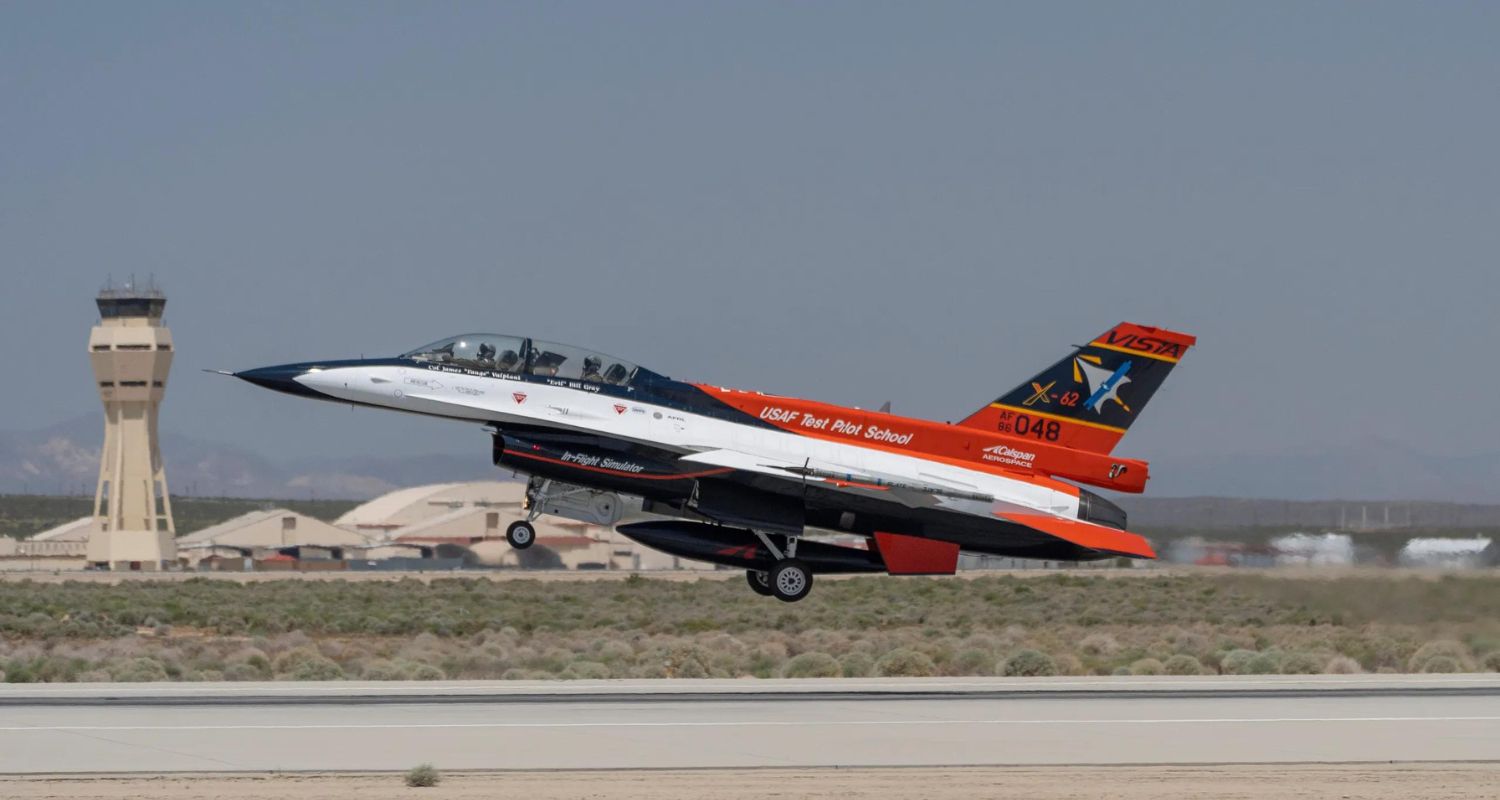At Edwards Air Force Base in California, an experimental F-16 fighter jet took to the skies with a groundbreaking twist: it was controlled entirely by artificial intelligence (AI), with Air Force Secretary Frank Kendall aboard. This development marks a significant milestone in military aviation, akin to the introduction of stealth technology in the early 1990s.
The AI-controlled F-16, named Vista, showcased its capabilities in aerial combat maneuvers, reaching speeds of over 550 miles per hour and subjecting Kendall to forces five times that of gravity. The demonstration underscored the Air Force’s commitment to integrating AI into its operations, with plans for a fleet of more than 1,000 unmanned warplanes by 2028.
Kendall emphasized the critical role of AI in modern warfare, citing its importance for national security. Despite concerns from experts and humanitarian groups about the potential for autonomous weapons, Kendall assured that human oversight would always be maintained, especially in decisions involving the use of lethal force.
The shift towards AI-enabled aircraft is driven by various factors, including security, cost-effectiveness, and strategic advantage. In an era where electronic warfare and advanced defense systems pose increasing challenges, unmanned aircraft offer a solution to mitigate risks to human pilots while maintaining operational effectiveness.
The Vista program represents a unique approach to AI development, with the software learning from both simulated and real-world flights. While other countries, including China, have invested in AI technology, the United States remains at the forefront with its innovative testing methods and rapid learning capabilities.
As AI continues to evolve, the pilots and operators involved recognize the transformative impact it may have on military operations. While there are concerns about job displacement and ethical considerations, the consensus remains clear: in an era of rapid technological advancement, embracing AI is essential to maintaining military superiority and ensuring national security.

